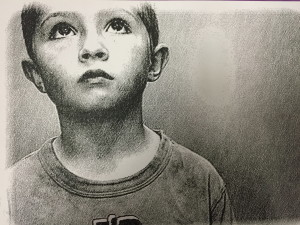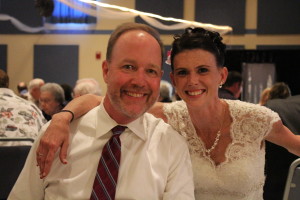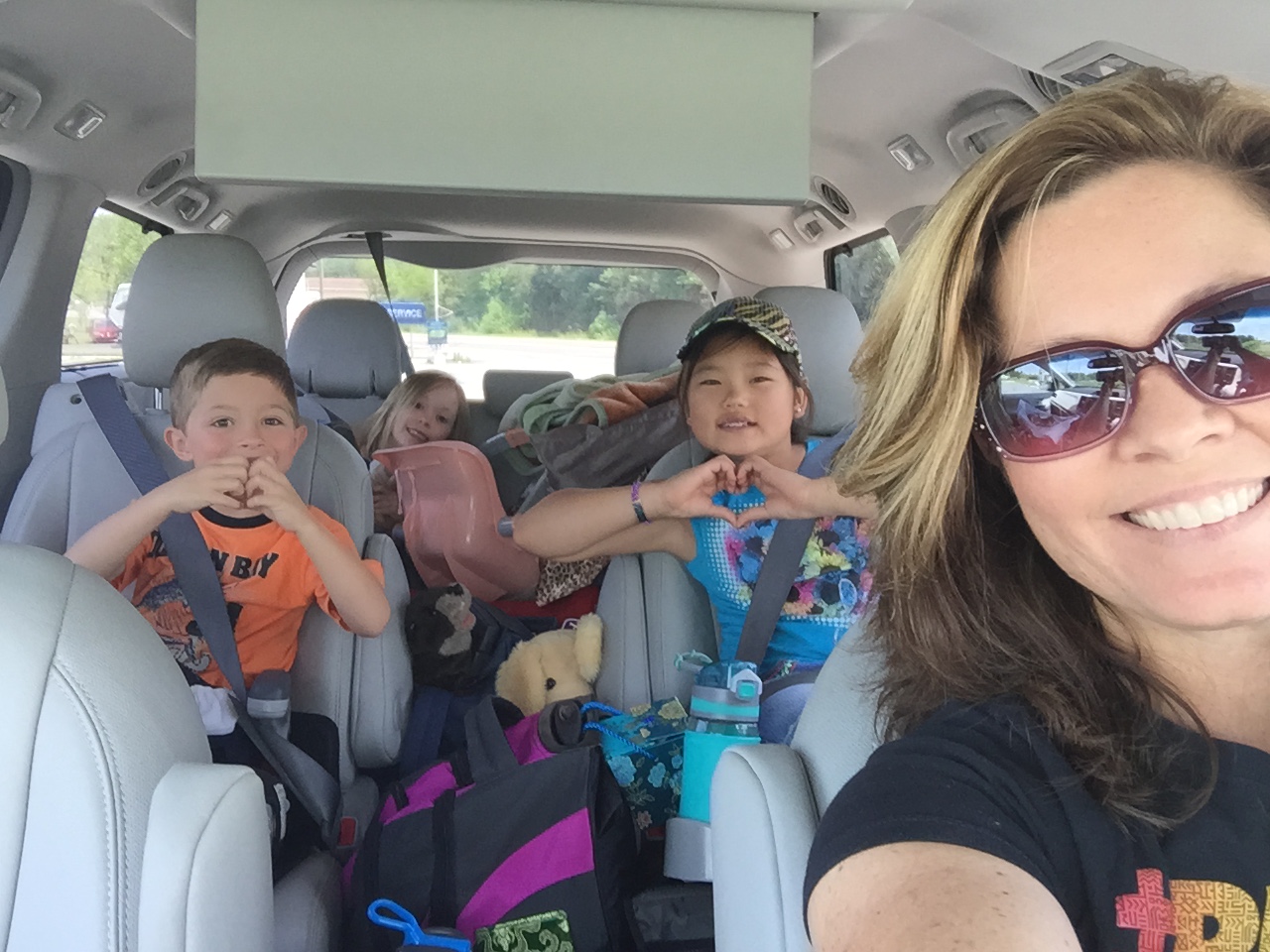I’m thankful I was raised by “processors” and am now married to one. Life is so much easier when you don’t have to hide your emotions.
When I want to avoid something (you know, when “nothing” is wrong, except everything is wrong), Keith always says, “The truth is not the problem” and then he encourages me to write and talk. On occasion, he lovingly says (with only a hint of sarcasm), “I can tell you’re a head-case – let’s talk about it.”
My Dad was an “external processor” (which drove my Mom crazy at times) and my Mom was an “internal processor” who didn’t tip her hand very often. But she encouraged us to process our emotions and bought me a little diary when I was really young. I still have my old diaries – I think the oldest one, with Ziggy on the front cover (how’s that for an old-school reference?) is from 1980, so I was 7 years old. Writing is among the most powerful things that she taught me to do – if I didn’t have a place to process my emotions, I’d be a much bigger mess than I am now.
All to say, I am grateful for the people in my life who teach me not to run from fear or failure or grief.
I always attributed the emotion of “grief” with death. I knew someone was grieving if they lost a loved one or if someone was really sick and suffering. But I can look back now and see the ways that grief has been so important in my life, in big and small ways.
I never imagined that there could be anything good about grief.
The first time I was able to use the word grief and recognize it in an honest way was with our daughter, Casey. I had definitely grieved many times before this (through divorce, infertility, crisis of faith seasons, etc.), but had never identified it.
I hate recounting the sad times with Casey because we also had really good times (we did so many fun and crazy things together, and there is nothing better than hearing her contagious laugh), and I’m so thankful we are in a great place now. But as Barbara Brown Taylor says (I’m reading her book right now, Learning to Walk in the Dark – it is brilliant!), “I have learned things in the dark that I could never have learned in the light, things that have saved my life over and over again, so that there is really only one logical conclusion. I need darkness as much as I need light.”
So I don’t want to ignore the dark times – they are sacred ground – the place where I was humble enough to let God teach me the hardest lessons.
Casey was 20-years-old when she left home abruptly and under bad circumstances. Our relationship was strained, to say the least. Eventually, I told her to come and sort through her things and take what she wanted. She ended up taking her bed and a number of other things, but she also left a lot of stuff. There were a few big trash bags and curiosity got the best of me, so I decided to see what she threw away. Little did I know the grief that would wash over me as I looked inside.
To be fair, Casey was not herself at the time and wasn’t thinking clearly, and she was angry with us, but I was unprepared for what I found. In the trash I found dozens of pictures (of family, friends, happy times), the silver box we had engraved with her new last name and adoption date to mark her formal adoption at age 18, letters and cards, jewelry, things that she had made in high school in a sewing class and art class. . . I could go on. And she left behind the Bible we had given her with her name on the outside and a letter we had written on the inside cover.
I sat in the floor in front of those garbage bags and wept. I was reeling. I couldn’t even process what I was feeling, so I went to the computer and grabbed my little flash drive (the flash drive that I purged every emotion into and then kept hidden – that little thing was my life raft many days) and began to write.
It was in those dark moments that I realized I was grieving. I was letting go, and it was the hardest thing I’ve ever done. I had to let go of my expectations, of control, of dreams, of everything.
It was through that process that I was able to fully give my daughter to the Lord. It was through that process that I was able to watch from a distance as He loved her and pursued her and brought people and circumstances into her life that gave her one chance after another to choose life. It was through that process that I saw His faithfulness. It was through my grief that I learned God loved my daughter even more than I did and He would be with her – He would never give up on her.
Up to that point, I thought God placed Casey with Keith and me so she could heal. I was naïve about childhood trauma and thought that with enough love, encouragement, boundaries, security, resources, etc., that Casey would thrive. I shook my fist at God and asked, “Why did you make me her Mom if I can’t help her?” It was through my grief that I realized I was never meant to help her – I was only meant to love her and let God help her. Now, with the benefit of eight years of perspective (and a few trips to a family counselor), I think the time we had with Casey at home was just to “till the soil” of her heart in some way so that maybe she could let someone else love her. But my expectations set me up for a huge crashing fall.
Those dark moments taught me how to name my grief. And it taught me the power of expectations. When life and relationships don’t turn out the way we plan, we have to grieve our own expectations or we set ourselves up for resentment.
“If you do not transform your pain, you will always transmit it.” (Richard Rohr, Yes, And)
I just finished reading an amazing book called Rising Strong by Brene Brown that outlined the importance of processing our emotions (she calls it the “rumble”) and not off-loading them in unhealthy ways. It brought clarity to so many things for me. Among other things, she writes about the importance of grief and how it’s part of many emotional processes, including forgiveness.
Brown says, “. . .our silence about grief serves no one. We can’t heal if we can’t grieve; we can’t forgive if we can’t grieve. We run from grief because loss scares us, yet our hearts reach toward grief because the broken parts want to mend. C.S. Lewis wrote, “No one ever told me that grief felt so much like fear.” We can’t rise strong when we’re on the run.”
Grief is an important part of life and it comes up in small and big ways more often that we realize.
Sometimes I feel stupid for the things I grieve, but denying my emotions doesn’t help. Grieving over a lost daughter seems appropriate, but I also grieved when we left our church this year; I grieved when some unforeseen circumstances ruined a highly anticipated date with my husband; I grieve sometimes when I watch our kids and realize I’ll never be able to recapture these moments, etc. Heck, I went off sugar recently and grieved over (on a whole different level, of course) giving up ice cream (I wish I was kidding – this is a serious loss for me. Denying myself sugar makes me want to throw myself in the floor and have a full-on tantrum, like a three-year-old).
And here’s the weird thing . . . I’m a really happy person! I enjoy every day of my life. Sometimes I’m so grateful, I feel like my heart will burst. And yet, I grieve. Sometimes I think my capacity for joy is proportionate to my capacity to acknowledge and integrate all my emotions, especially the ones that scare me the most.
I’m not trying to make light of grief (especially since there are types of grief that I can’t understand – loss of a spouse or child, loss of health, etc.). There’s nothing light about it – it sucks. Sometimes we are forced into grief, over circumstances that would absolutely sink us if we didn’t lie face down in our pain and feel it.
But just because there is heavy and profound grief doesn’t mean we should deny other, less heavy but still significant, types of grief. It’s necessary, and we shouldn’t try to avoid it or cure it or rush through it. Sometimes I think the “smaller” sorrows are much more dangerous. We can mask them, avoid them, deny them, and remain silent and isolated — at least for a season, until the pain catches up to us and surfaces in some unhealthy way.
Over time, I have come to realize that we are not meant to experience life in emotional isolation. I can’t relate with a parent who has lost a child – it would be arrogant of me to even try. But I can relate to a mom of multiples who hasn’t slept through the night in months; I can relate to someone dealing with infertility, or who is waiting (endlessly, unbearably) to adopt; I can relate to the parents making tough decisions because their child has a learning disability; I can relate to the person experiencing a crisis of faith . . . “God is the perfect Recycler; and in the economy of grace, nothing is wasted . . .” (Richard Rohr, Yes, And)
Good grief. (It appears that Charlie Brown had it right all along)
I’ll be learning “good grief” for the rest of my life because I am a holder-on’er – I like control; I don’t like letting go. But I’m slowly, and begrudgingly learning “the art of letting go is really the secret of happiness and freedom.” (Richard Rohr, Yes, And)
And you can’t let go without “good grief.”
(A picture of Keith and our beautiful daughter at her wedding in August. So grateful for how far God has brought us.)



 Follow
Follow share via email
share via email

Oh, Tamson! I so needed to read this. I am bawling now. Love you so much!
Love you too, Marilyn! I’ve had a card sitting on my desk for weeks to send you – to let you know I’m thinking of you in your grief. I can’t even imagine that kind of grief, but I read this recently and thought of you, “The brokenhearted are the bravest among us — they dared to love.” (Rising Strong, Brene Brown).
Wow Tamson! What an inspired blog post! I only wish we didn’t have to live through the events that inspired it, but as you said, we need the darkness as much as the light. Thank you my friend for helping me process emotions I couldn’t find a name for, it’s Good Grief! After midlife there are many things we have to learn to let go of, it becomes an ongoing process, and I don’t think many of us acknowledge the losses and wonder why we feel the emptiness. This post really enlightened me to walk through these moments rather than avoid them, and be thankful for a God who is on the other side to encourage us forward. Thanks again! Love you.
Just read your blog post and can so relate to this. Thank you for sharing your heart in your blog. You don’t know how much it blesses me!
Thanks for a great and insightful blog. I have always done my best to ignore grief and used to believe that grieving was a lack of faith. I finally discovered that was not true, but it took a long time for me to arrive at the understanding that grieving was just as important as happiness and joy and until I learned how to grieve there would never be joy, happiness and peace in my life. At this stage in my life I am grieving old age because I realize that my remaining time on earth is about over, I realize that I could have done so much more and now I do not have the energy or the time to accomplish many of the things that I should and could have done. However, grieving my fallures and acknowledeing them helps me to move on and strive to do better with the time that I have remaining. Dealing with grief only helps when we are able to accept it and move on. One reason people try to avoid grief is that when they enter into it they are never able to move beyond it and spend the rest of their days grieving. Understanding the grief process is important, but moving through it and beyond it is absolutly necessay or it will rob you of a joyful life. I pray this information you shared will be and encouragement to all of us who struggle with grief and will help us understand that it a very important part of liffe.
Tamson, once again you speak to my heart and what an inspiration you are to me. I enjoy your blog so much!!! Love you!